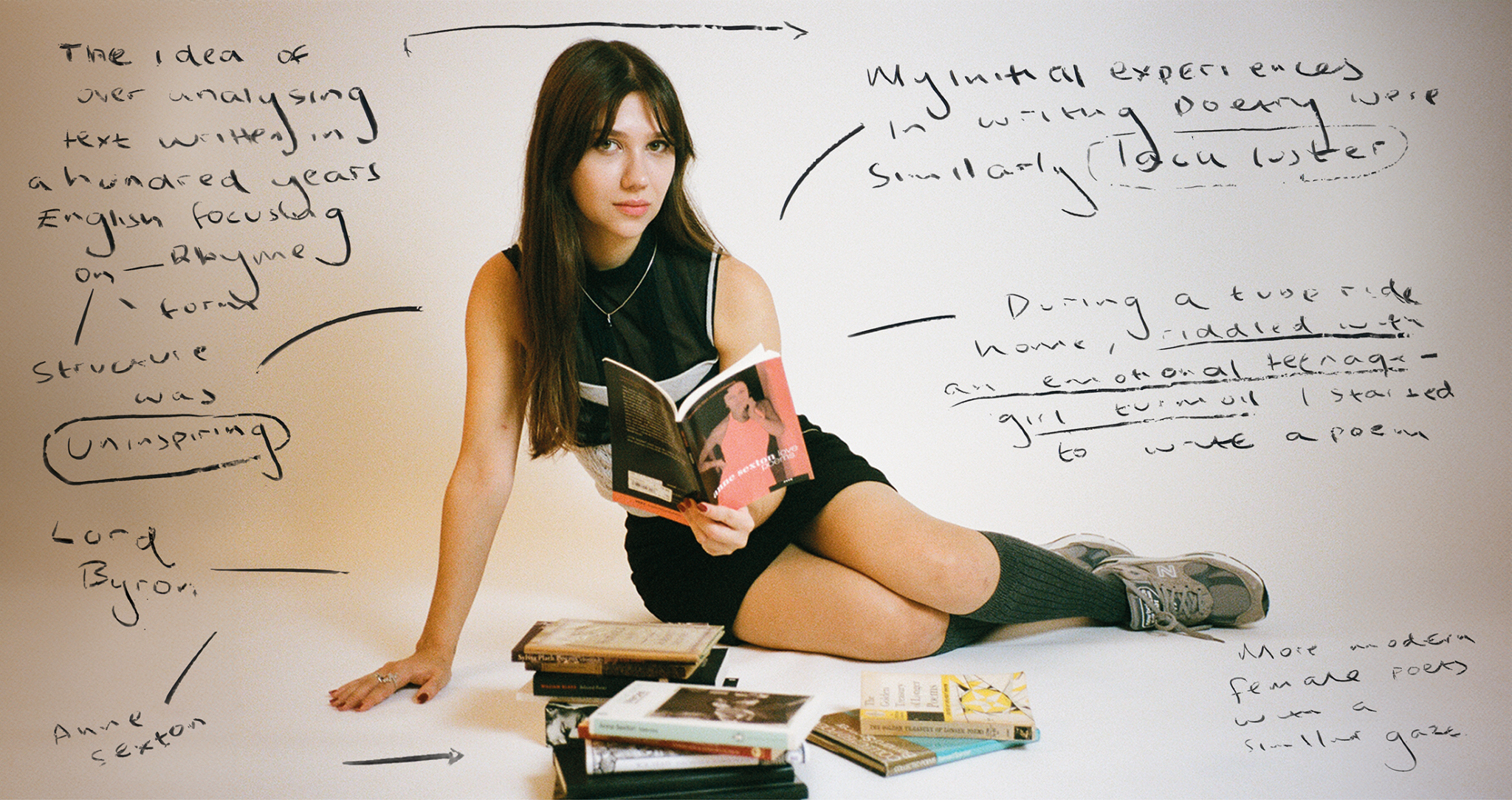

When Allegra Handelsman was first introduced to poetry, she dreaded the classes. Yet age 16, and desperate for a creative outlet, she revisited the medium anew. Now in her 20s, poetry holds a significant place in her life, an outlet for pain and feeling which she also shares with friends and fellow writers at poetry nights in London. “I discovered how healing the process of writing poetry could be.”
Would it be cliché to suggest that poetry is ‘medicine for the soul?’ Perhaps. But as pretentious as I might seem, writing poetry has been an integral part of my adulthood and a therapeutic experience. So I would argue that poetry needs to be discussed more as a healing tool, in contrast to its teaching in the education system, which is far too limited and often uninspiring.
When I was first introduced to poetry at school, I dreaded the classes. The idea of over analysing text written in a hundred-years-old, almost foreign-sounding English, focusing on structure, rhyme and form, was uninspiring. Although I could appreciate the beauty of their language and rhythm, when we examined mostly male dominated works by Shakespeare, Keats and Byron, poetry felt like an expression far removed from myself, an art form lost in time. This of course could not be further from the truth.
My initial experiences in writing poetry were similarly lackluster. In the first couple of years at my secondary school, an academically competitive all-girls London institution, I was made to participate in a poetry competition. Once a year, each of the younger students had to write a poem based on a chosen topic, such as nature, home or family, and three winners as well as several runner ups would be selected from each year. Since I was keenly writing short stories at the time, pouring my tendency to daydream during class into my own private artistic projects, I enjoyed the opportunity to practise creative writing, but was never chosen as winner or runner up.
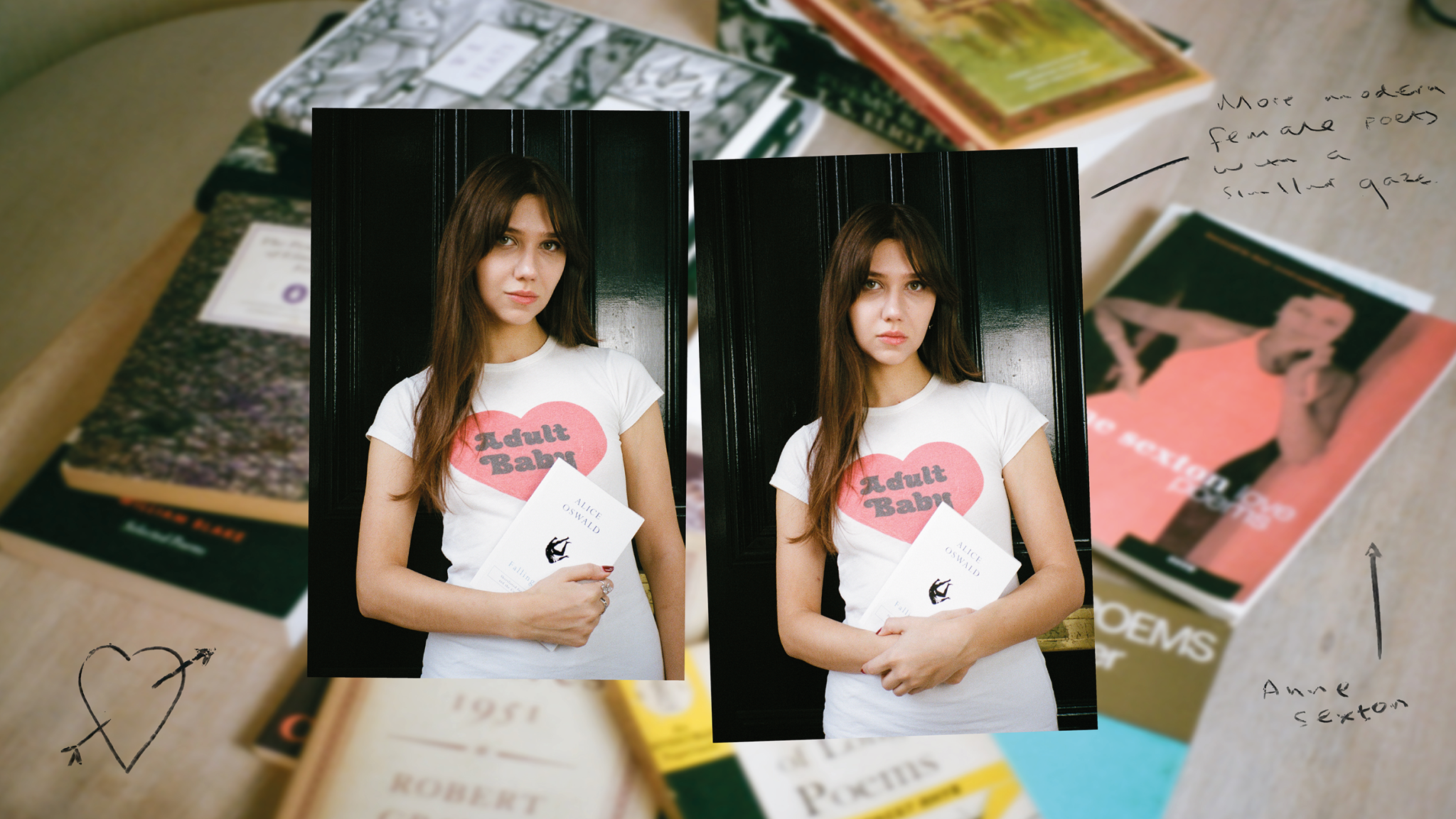
Allegra Handelsman by Fatima Khan, styled by Flossie Strickland
My more significant attempt at writing poetry during my adolescence occurred when I was sixteen. Desperate for a creative outlet, I decided to study fine art at A Level and was forced to attend an after-school life drawing class. However, due to my lack of drawing skills, painfully on display to the rest of the room, once the class ended, my teacher pulled me aside to inform me that my sketches were not up to the quality of the other girls, and I should have chosen to study art history instead.
Yet during my tube ride home, riddled with an emotional teenage-girl turmoil I started to write a poem. The piece, mirroring the melodramatic tendencies of its author, was about the tragedy of being a ‘talentless artist,’ and the delusion around my own creative abilities. When I arrived home, I spent the rest of the evening finishing it, and by the time I went to sleep, I felt more artistically fulfilled than I had in years. By this age, I had already gained an appreciation for poetry, recently introduced to the works of Sylvia Plath and Anne Sexton, whose writing on sexuality and emotional anguish made poetry feel more relevant to myself. After previously studying the works of male poets such as Wilfred Owen or Seamus Heaney, who wrote although beautifully on war and political-violence, these female poets wrote with a familiar gaze, which I found easier to engage with. So, over the next few days I attempted to write more poetry, using the events of my relatively mundane adolescent life as inspiration. The following week, I decided to show the first poem to an English teacher. I remember my hands slightly shaking as I approached her, hoping she would see my newly unlocked passion, and help me find ways in which I could explore it further.

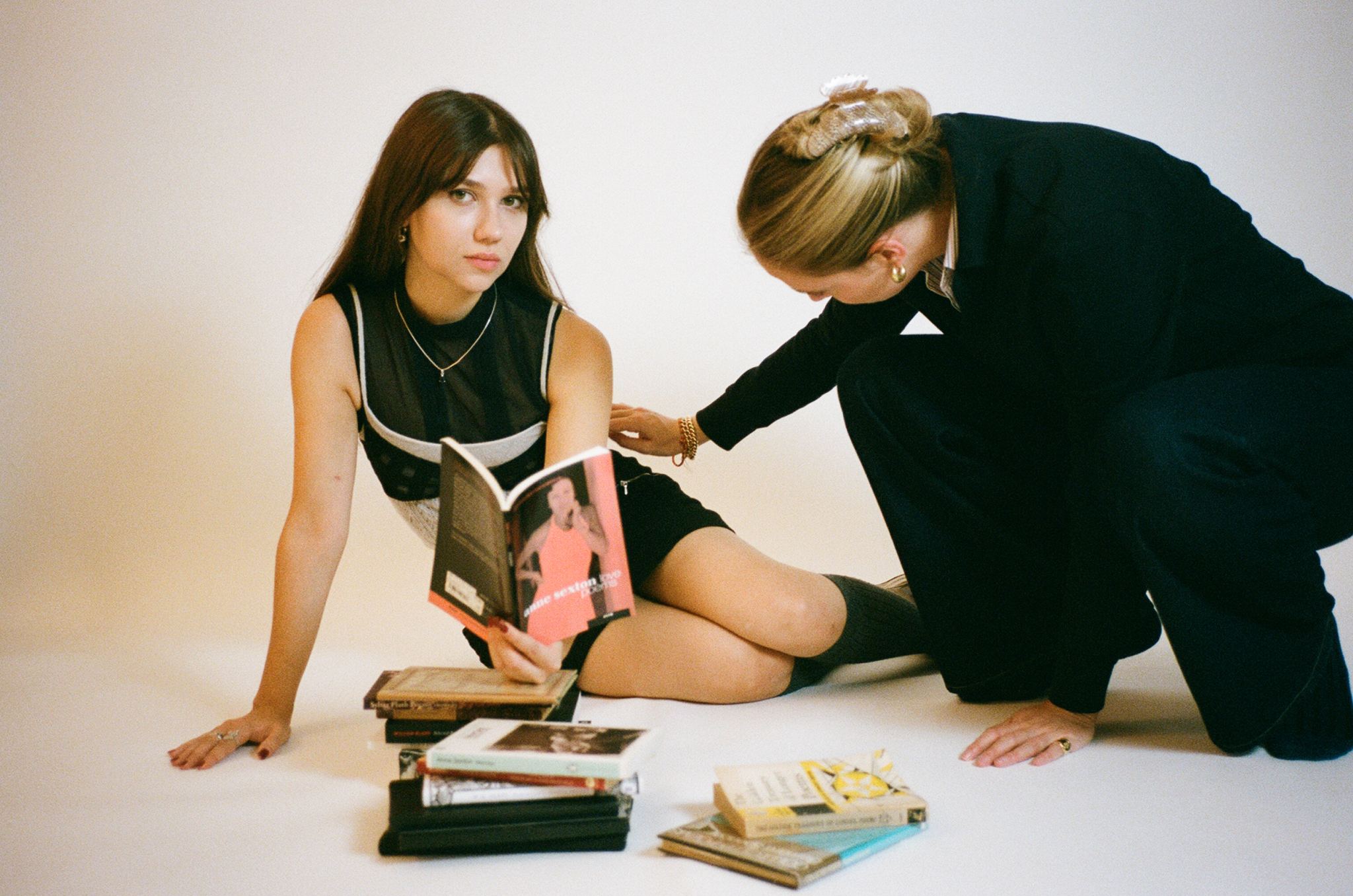
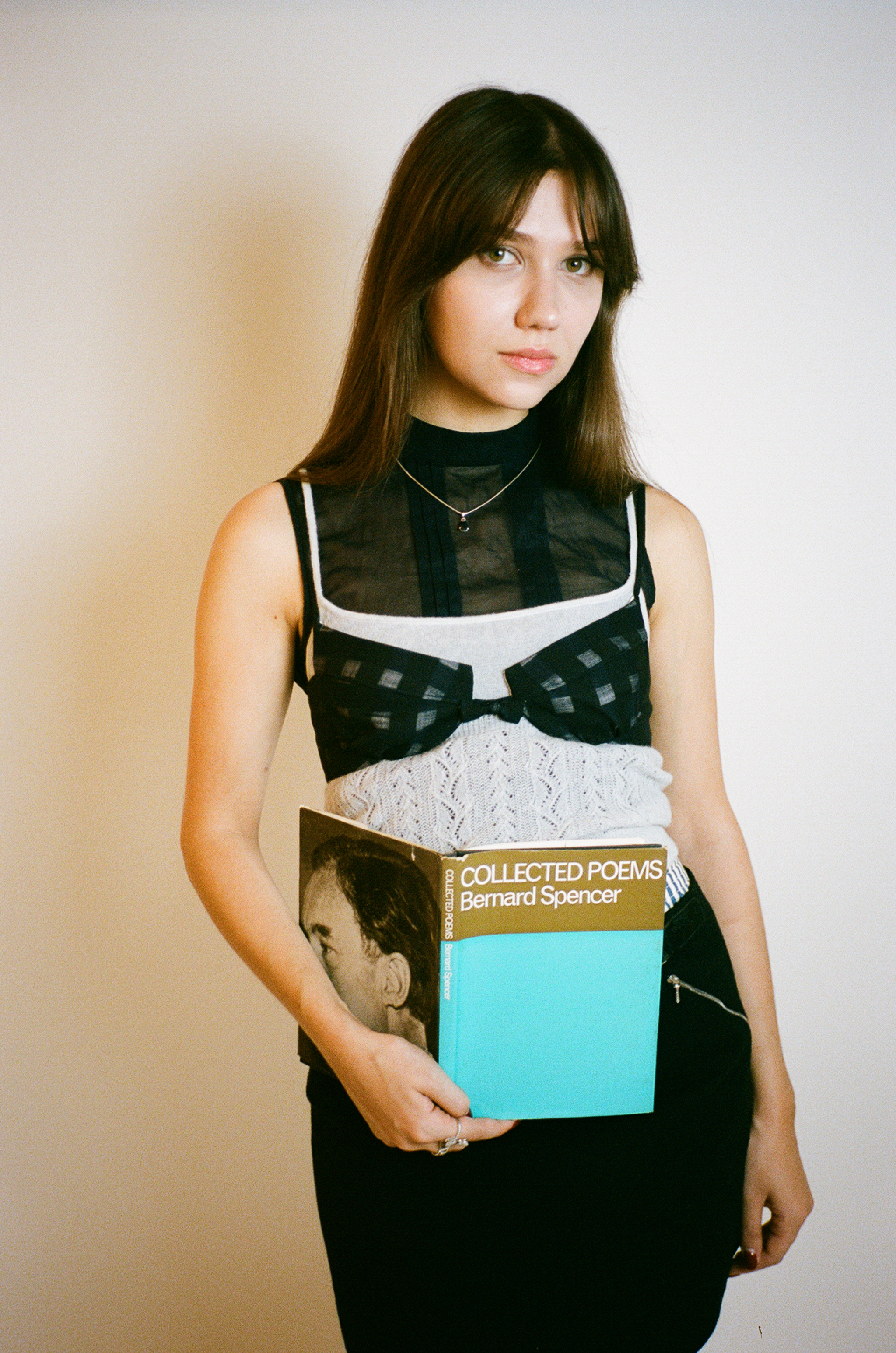
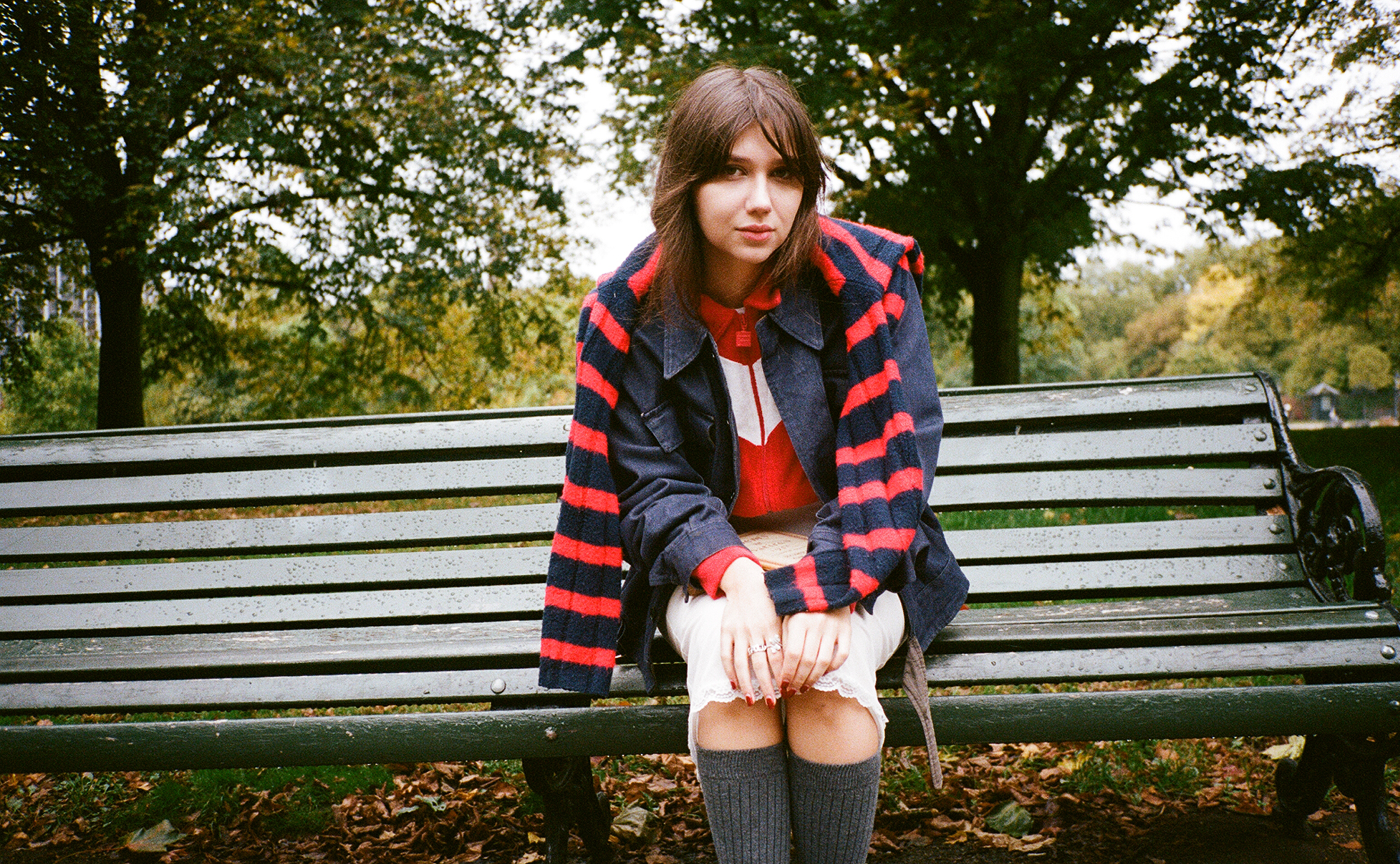
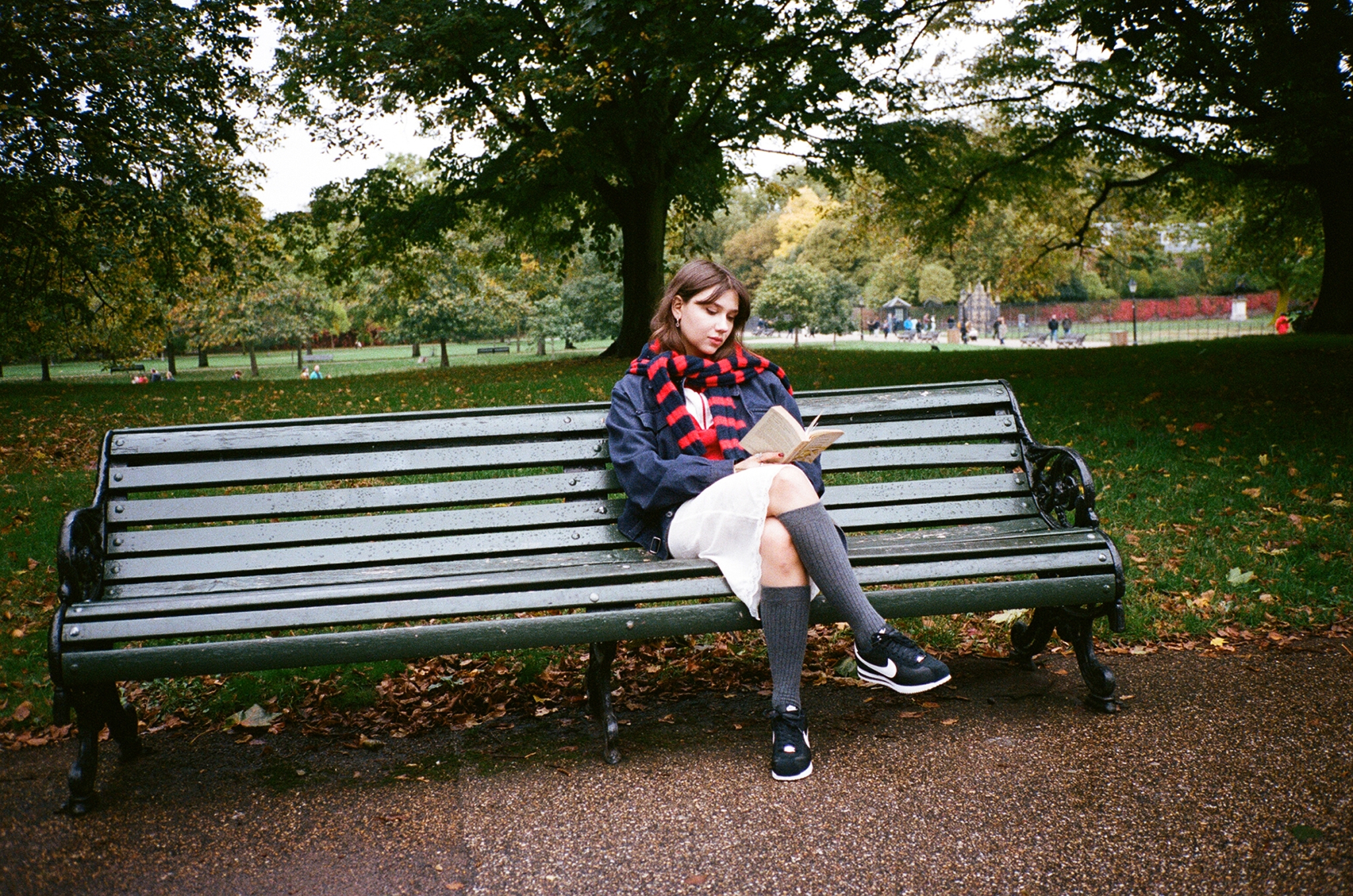
We spoke in a busy school hallway outside the teachers’ lounge, as she read the poem with haste. Once she handed me back the piece of paper, it was covered in red ink. She told me that the first two lines were fine, but I repeated myself in the second stanza, and the rhythm of the poem was clumsy and inconsistent. The whole interaction lasted around three minutes, during which she dissected my poem like a corpse, never mentioning the topic that I was exploring or the meaning behind my use of certain metaphors or questioning my intention in writing the piece in the first place. It would be years before I wrote a poem again.
In early 2021, a very close friend of mine tragically passed away from cancer, taking a considerable toll on my mental state. Although the death of a loved one was not a foreign experience to me, her passing left a void which felt as if it would never heal. By this time, I religiously kept a diary to separate the days which were beginning to blend into one and address my experiences of depression and anxiety during lockdown. One night, sitting on the floor of my bedroom, I wrote a diary entry with a different pattern to the rest. Unable to express my grief with prose, I began, unintentionally, to write verse. By the time the side of my left hand was covered in ink, I had written my first poem in years, as well as the first poem which I eventually became confident enough to share.
I discovered how healing the process of writing poetry could be. The following few weeks, during moments of intense anxiety and loss, I would write verse using pen and paper, with only the intention of processing my experiences. During this period, I was consumed with the fear that I would forget my friend, and so lose her all over again. However, through writing, I felt as if my memories and grief were materialised, allowing me to move on from this guilt.
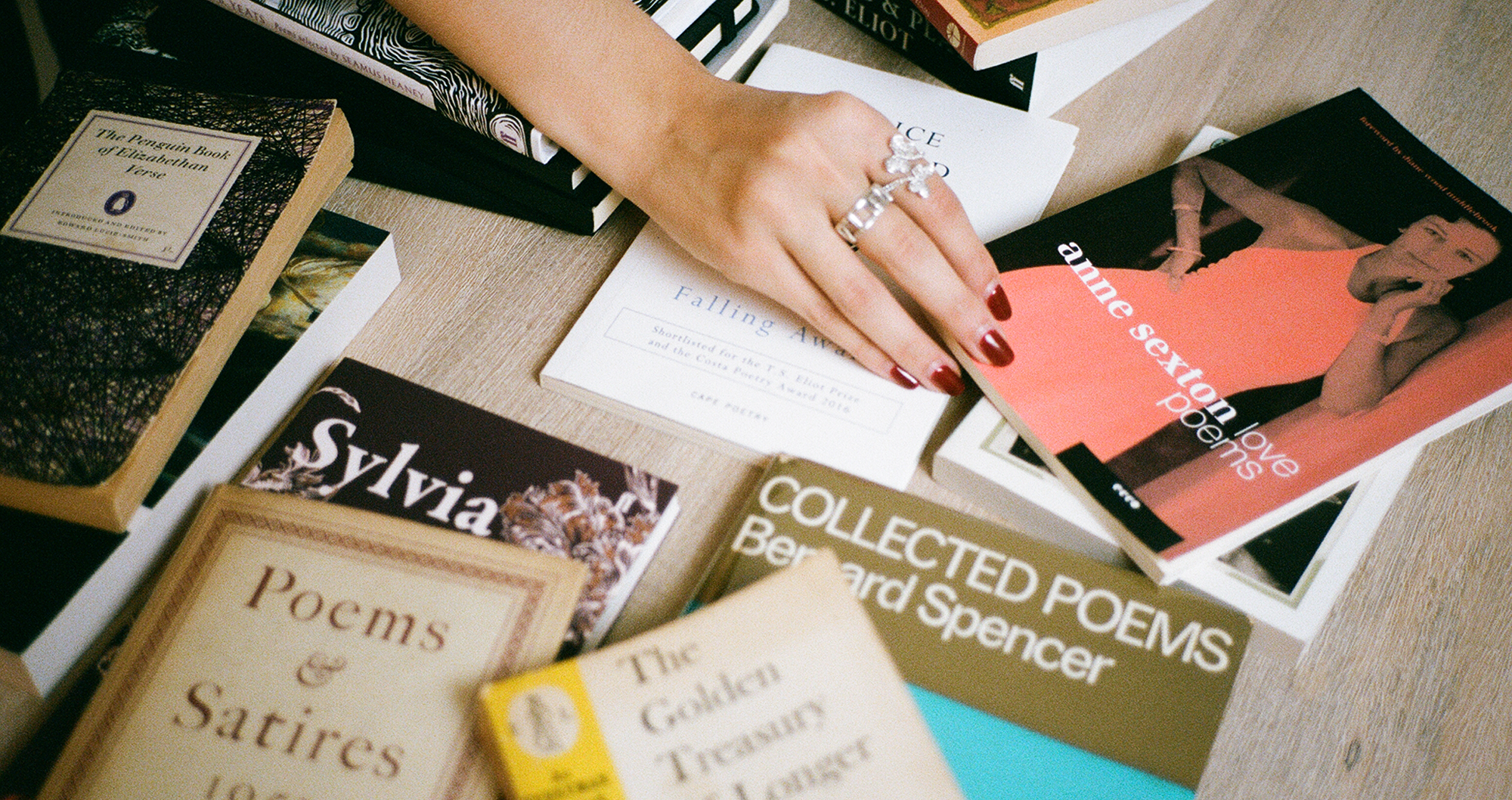
Allegra’s poetry books, list in credits below
By the time I began sharing my work, reading at spoken word nights the following year, I had written poetry not just on everything from heartbreak and anxiety to the performance of maturity. Performing to an audience of friends, acquaintances and strangers, I constantly questioned about why I started writing and I realised how poetry came to me accidentally, during a time when I needed it the most. Then once I spoke to other poets, I discovered that this was a common experience. Many poets seem to have discovered their love for writing poetry on their own, away from the traditional education system, its methodical approach to the artform and classes overly analysing work about the Irish food famine at fourteen-year-old.
During the first late-night poetry event I hosted called Secrets and Confessions at the Gothic Bar, I explained to the audience my personal belief that poetry, like music, is a form of artistic solidarity. Most people who read poetry, don’t read it regularly, they don’t flick through the pages of Maya Angelou or Walt Whitman at a dentist’s waiting room to pass the time. Instead, they turn to poetry during times of emotional crisis. They read verse when they’ve lost someone close to them, during periods of loneliness, when their heart is broken or when they’ve fallen in love. They read poetry to understand the complexities of their experiences and to bridge feelings of isolation. It reminds us of the comforting fact, that even in our most unfamiliar states, someone else has been here before.
I discovered how healing the process of writing poetry could be. The following few weeks, during moments of intense anxiety and loss, I would write verse using pen and paper, with only the intention of processing my experiences. During this period, I was consumed with the fear that I would forget my friend, and so lose her all over again. However, through writing, I felt as if my memories and grief were materialised, allowing me to move on from this guilt.
Allegra Handelsman
To this day I’d never be so bold as to say my work is good, but I will argue that, like almost all forms of artistic expression, it carries value. Each piece of poetry I produce is a direct reflection of my inner thoughts and emotional state. My work is not made through committee or heavily edited by someone else, and although it can sometimes be clumsy and cliché, it’s raw and deeply personal. There’s a vulnerability to my work, something I was once embarrassed by, but have now learnt to embrace it, discovering the freedom in releasing these emotions.
Now looking back on my early academic introduction to poetry, I wonder how many other students were also disheartened by it. Personally, I believe poetry should be an integral form of education for teenagers, taught not just in a traditional academic style, but also as a means of understanding the world as well as oneself. Because I do unashamedly argue that poetry can be medicine for the soul. It wasn’t until my friend died that I understood how rich an experience writing poetry could be, whether you share it or keep it to yourself. While I understand that writing verse is not a fix all for everyone, I would recommend it to those who are willing to give it a try.
Recently, I’ve been approached by those asking if I can help give them a platform to perform their poetry. Partly inspired by poets of my generation far more talented than myself, from Amanda Gorman to Ocean Vuong, it seems as if more people are starting to embrace this creative outlet, and as a self-described ‘self-aware’ generation perhaps writing poetry is an inevitable path.

Allegra Handelsman by Fatima Khan, styled by Flossie Strickland
When I told you I was broken, I lied
I’m not broken
Why would I want to be
What’s the point in something broken
Yes it can beautiful, fetishised from a comfortable distance
But at the end of the day a broken item is simply useless
No that’s not me
At least not yet
I’m not broken
I’m just chipped
You think I’m this damaged vase smashed on the floor with ruined flowers
But that’s far too romantic
I’m not made of crystal or filled with something once pure
No
I’m just a delicate china cup from which you all drink
I’m chipping with every sip you take
And you do
You do drink from me
And you enjoy it
Because my edges are only slightly worn
Barely even noticeable
If anything they add character they add depth
My colour has yet to dull
My base can balance on a table
I still have some use
So you continue to sip
You drink me dry
Then eventually from your gluttonous consumption
Another piece will fade away
And I will finally be broken
But I’m only a china cup
So I will not be beautiful
I will not be something worth admiring
I will be useless to you all
And inevitably discarded

5 poems every young person should read:
The Guest House – Rumi
Daddy – Sylvia Plath
Touched by an Angel – Maya Angelou
Bluebird – Charles Bukowski
Cosmopolitan Greetings – Allen Ginsberg
Allegra Handelsman
Produced by Broad Peak Studio
Design Assistant Adriana Aoun
Graphic Artist Kitty Spicer
Styling by Flossie Strickland
Look one: Black jacket – Stylist’s own, t-shirt – Contemporary Wardrobe, skirt – Shushu Tong
Look two: Blouse, knitted vest and bra top – Shushu Tong, skirt – talent’s own, shoes – New Balance
Look three: Blouse, knitted vest and bra top – Shushu Tong, stripe boxer shorts- Contemporary Wardrobe, skirt- Talent’s own, socks- Stylist’s own, shoes- New Balance
Look four: Red zip jacket and blue cotton jacket – Contemporary Wardrobe, stripe jumper – Stylist’s own, skirt- Shushu Tong, socks – Stylist’s own, shoes- Nike
(All jewellery talent’s own)
Allegra’s poetry books, including: Collected Poems by Bernard Spencer (1965), Poems and Satires by Robert Graves (1951), The Golden Treasury of Longer Poems edited by Ernest Rhys (1921), The Penguin Book of Elizabethan Verse, introduced and edited by Edward Lucie-Smith (1965), Falling Awake by Alice Oswald (2016), Mercies by Anne Sexton (2020), W.B. Yeats, selected poems by Seamus Heaney (1966), Selected Poems of William Blake (1994), Love Poems by Anne Sexton (1999)





